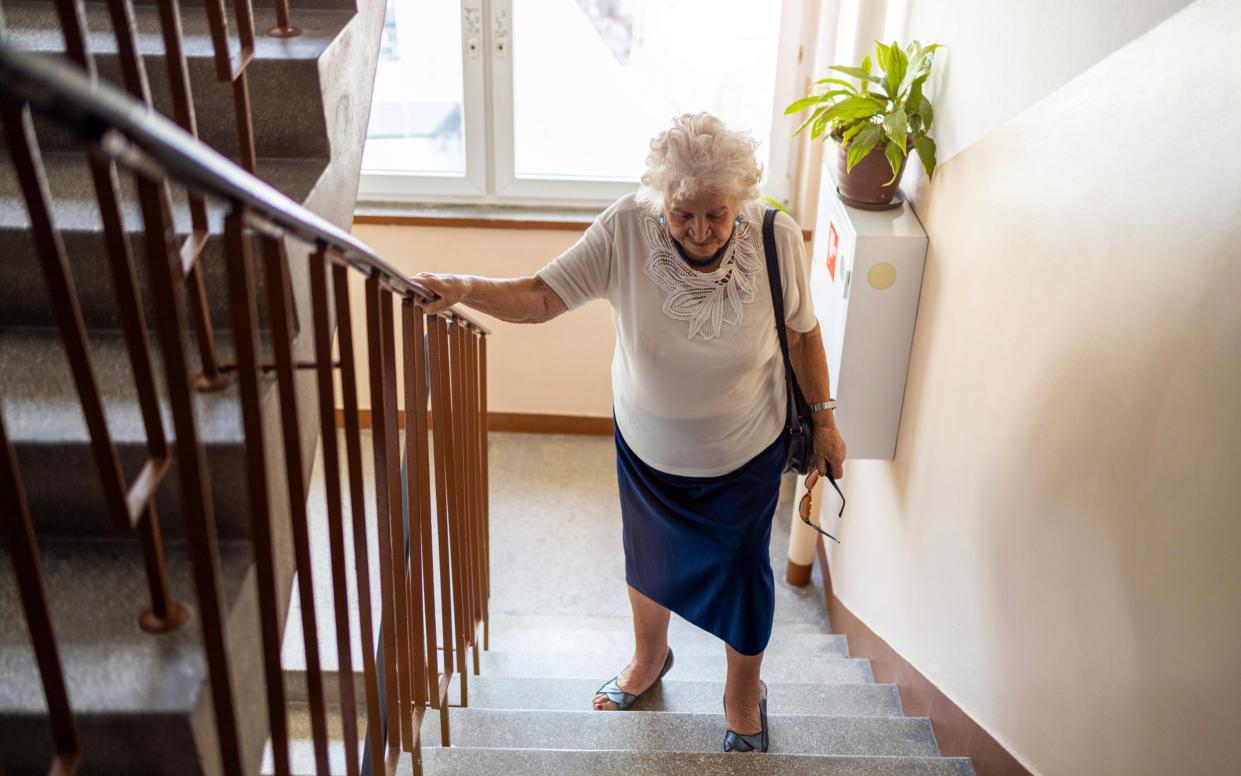Ditch the lift and climb stairs to cut risk of early death by a quarter

Climbing stairs instead of using the lift could cut the risk of early death by a quarter, a major study has found.
Research on almost half a million adults found that short bursts of activity was linked to longer lives and stronger heart health.
The findings, presented at a European Society of Cardiology conference, suggest that regularly taking the stairs is associated with a 24 per cent reduced risk of dying from any cause and a 39 per cent lower likelihood of dying from heart disease.
Researcher Dr Sophie Paddock, of the University of East Anglia and Norfolk and Norwich University Hospital Foundation Trust, in Norwich, said: “If you have the choice of taking the stairs or the lift, go for the stairs as it will help your heart.
“Even brief bursts of physical activity have beneficial health impacts, and short bouts of stair climbing should be an achievable target to integrate into daily routines.”
Lower risk of heart disease
For the study, the team looked at data from nine studies involving more than 480,000 people, aged between 35 and 84 years.
Healthy individuals as well as patients with heart disease were included in the analysis, of whom 53 per cent were women.
In addition to reducing the risk of premature death, stair climbing was also found to be associated with a lower risk of heart disease including heart attack, heart failure and stroke.
Physical inactivity is associated with one in six deaths in the UK, according to a report compiled by the Office for Health Improvement and Disparities.
Evidence suggests regular exercise can reduce the risk of early death and heart disease.
The NHS recommends at least 150 minutes of moderate-intensity exercise every week, which can include walking, cycling or gardening.
Dr Paddock said: “Based on these results, we would encourage people to incorporate stair climbing into their day-to-day lives.
“Our study suggested that the more stairs climbed, the greater the benefits – but this needs to be confirmed.
“So, whether at work, home or elsewhere, take the stairs.”
More older people exercising regularly
It follows new figures showing that the number of older people exercising regularly has shot up – while fitness levels have plummeted among young people.
The number of over-75s meeting NHS exercise guidelines in England has jumped by 25 per cent in eight years, while young people’s fitness levels have fallen, new figures show.
Since Sport England started collecting data in 2015, two million more adults have been meeting the target, the highest since the survey began.
But the organisation’s latest report shows that the increase is being driven by older people.
The Active Lives Adult Survey shows that activity levels of 16-to 34-year-olds have failed to recover to pre-pandemic levels, with 70.1 per cent achieving recommended exercise levels currently, compared to 72.2 per cent in 2015-2016.
In contrast, some 42.8 per cent of the over-75s hit weekly targets, which has risen from 33.4 per cent in 2015-2016.
Last month research found that walking 10,000 steps a day is enough to lower the risk of early death by almost 40 per cent – even if the rest of the time is spent on the sofa.
Studies have found that those who spend a lot of time sitting while awake, such as at their desks or watching TV, are more likely to suffer an early death and develop heart disease.
Unclear whether walking offsets sitting
But, until now, it has been unclear whether walking can offset the effects of sitting for most of the day.
For the study, experts led by the University of Sydney used UK Biobank data from 72,174 people who were aged about 61.
They all wore an accelerometer device on their wrist for seven days to measure exercise levels.
The findings, published in the British Journal of Sports Medicine, showed that anything beyond 2,200 steps a day was enough to make some difference to heart health and mortality.
Those managing 4,000 steps a day cut their risk of early death by 20 per cent.
The best results were among those achieving between 9,000 and 10,000 steps daily, who cut their risk of premature death by 39 per cent. This group also reduced their risk of heart attacks and strokes by 21 per cent, the research found. Gains were achieved regardless of how much remaining time was sedentary.


